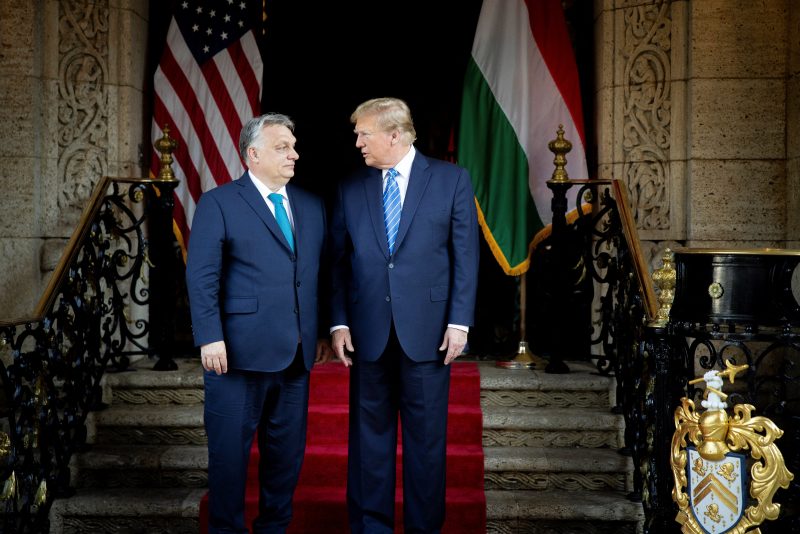The recent meeting between former U.S. President Donald Trump and Hungarian Prime Minister Viktor Orban raised eyebrows across the globe. Trump’s history of embracing autocrats and strongmen is no secret, and his sit-down with Hungary’s controversial leader further added to the speculation about his affinity for authoritarian figures. While the meeting itself was not unprecedented in international diplomacy, the optics and implications of such a high-profile encounter cannot be ignored.
At the heart of the matter is Orban’s reputation as an autocratic leader who has faced criticism for his erosion of democratic norms in Hungary. Despite being a member of the European Union, Orban’s government has been accused of undermining the independence of the judiciary, stifling press freedom, and cracking down on civil society organizations. His anti-immigrant stance and nationalist rhetoric have also sparked concern among human rights advocates and EU officials.
The meeting with Trump, therefore, was seen as a validation of sorts for Orban’s leadership style and policies. By engaging with him on an official level, Trump appeared to signal his support for Orban’s brand of governance, which prioritizes national sovereignty and security over liberal democratic values. This alignment of interests between the two leaders sent a message to both domestic and international audiences about the direction of U.S. foreign policy under Trump’s administration.
Moreover, the symbolism of the meeting should not be underestimated. Trump’s willingness to cozy up to leaders like Orban sends a chilling message to pro-democracy activists and reformers around the world. It signals that the U.S. is willing to engage with and potentially legitimize governments that flout democratic norms and trample on human rights. This could embolden other authoritarian leaders to further consolidate their power and disregard international standards of governance.
Critics of the meeting argue that Trump’s embrace of Orban undermines America’s credibility as a champion of democracy and human rights. By cozying up to autocrats and turning a blind eye to their abuses, the U.S. risks losing its moral authority on the global stage. This could have long-term implications for U.S. foreign policy and its ability to promote democratic values and institutions around the world.
In conclusion, the meeting between Trump and Orban may have been just another diplomatic encounter on the surface, but its underlying implications are far-reaching. It underscores the complex interplay between geopolitics, ideology, and personal relationships in shaping global affairs. As the world grapples with rising authoritarianism and democratic backsliding, the actions and statements of influential leaders like Trump and Orban take on added significance. The repercussions of their alliance could reverberate for years to come, shaping the contours of international politics and the struggle for democracy and human rights.
